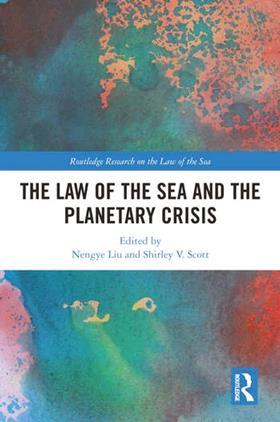The Law of the Sea and the Planetary Crisis
Edited by Nengye Liu and Shirley V Scott
£145, Routledge
★★★★✩
This collection of essays is a commendable and timely effort to describe the intersection between governing oceans, and planetary crises such as climate change, biodiversity loss and pollution. It looks at whether the law of the sea’s current legal framework – particularly the UN Convention on the Law of the Sea (UNCLOS) – is still able to address the multifaceted challenges global environmental crises pose.
The Law of the Sea contains eight substantive contributions by scholars, several of which are especially noteworthy. Foremost is an original and in-depth analysis of ocean acidification. This issue is largely unaddressed by UNCLOS and associated legal instruments.

Regulation of deep-sea mining is another critical area analysed. A rigorous critique of the International Seabed Authority’s regulatory role sets out the risk that future policies will prioritise economic exploitation over environmental stewardship, thereby undermining sustainable and precautionary approaches.
Another significant chapter addresses the Biodiversity Beyond National Jurisdiction Agreement. Created to complement UNCLOS, this established a legal framework for the conservation and sustainable use of marine biodiversity in areas beyond national jurisdictions.
The book also examines areas of maritime law explored in the broader literature, such as the expansion of renewable energy – particularly offshore wind farms’ interaction with ocean spaces – and ongoing decarbonisation efforts spearheaded by the International Maritime Organization.
This study urges that the governance of the oceans be reconsidered through a holistic and integrated lens. It calls for a move away from fragmented, state-centric decision-making toward an ecological and systems-based approach to ocean governance.
Dr Carlo Corcione is a lawyer and manager specialising in trade, shipping and logistics































No comments yet